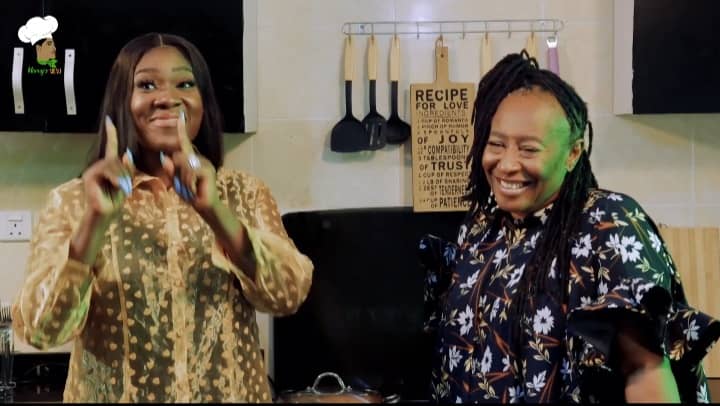
Once upon a time, in the not-so-distant past, it was nearly impossible to get a loan in Nigeria without going through an agent or being a salaried employee. Much like it was impossible to have a retirement savings account or get a pension plan if you weren’t attached to an employer.
As early as 2015, for example, if you wanted to get a loan from legitimate sources,
like a bank, you would have had to fill out reams of paperwork and answer questions ad nauseam, all with no guarantee you would get what you needed. But times have changed, and companies like Carbon are turning this norm on its head, making it easier and more efficient to access loans and other credit facilities.
At some point in Nigeria, the idea of owning a product, like a smartphone or smart TV, without having to pay the total amount for it was reserved for an exclusive class of people. That is no longer the case.
According to this report from Rest of World, “In a country where only 2% of the 106 million adult population have access to bank credit, credit cards are also conspicuously absent, as banks shy away from consumer lending. BNPL [Buy Now, Pay Later] is becoming a rising alternative and is set for further growth, as Nigerians embrace digital credit.” This is a far cry from what obtained a few years ago, and Carbon is at the forefront of this revolution.
Let’s take some steps back to understand where this is coming from. What was the norm? What were the challenges that came with it? What is the new reality? What are the opportunities that come with it? And what makes companies like Carbon uniquely positioned to continue solving these problems?
Historically, Nigerian banks have taken a risk-averse posture to issuing loans to individuals rather than corporations. In 2017, the Central Bank of Nigeria released a report showing that just 5.4% of Nigeria’s adult population had access to credit. In 2018, that figure rose marginally to 5.5%, and in 2019, it was 6.2%.
To encourage more banks to lend to their non-corporate customers, the central bank issued a directive in September 2019 that raised banks’ Loan to Deposit Ratio to 65%. This directive required banks to give out a stipulated percentage of their total deposits as loans. This initiative aimed to stimulate the economy and encourage more cash flow. However, it also indicated how difficult it had become for the average Nigerian to access the credit they needed to improve their businesses and quality of life.
As with anything else, there’s a flip side to this. Banks weren’t risk averse because they felt like it. Instead, they were that way to protect themselves, and, in some way, that was also a reflection of reality. To properly issue loans, financial institutions need accurate data to assess an individual’s creditworthiness. Underlying infrastructural problems coupled with a lack of agility to innovate quickly meant many financial institutions could not harvest, process, and utilise the data they needed to make significant lending decisions.
But where there are gaps like this, nature always finds a way to fill them. Where some legacy financial institutions were slow to act, other innovators –– younger and more agile –– saw a chance to create solutions that could improve the lives of others and open more doors.
In June 2012, OneCredit, a company pioneering consumer lending in Nigeria, opened up shop. Its promise was simple: to make it easier for salary earners to access loans at a time when it was inconceivable to lend money without collateral. But OneCredit took the risk. In March 2016, the company evolved into Paylater, a platform providing instant loans digitally while offering payment and investment opportunities to its users. It was Nigeria’s first digital lender, another risky move in an otherwise risk-averse industry. In 2019, Paylater expanded and became what we now know as Carbon, a credit-led pan-African digital bank offering affordable loans, a deposit account, a high-yield savings account, free bill payments, free transfers, and debit cards.
By December 2021, the company generated N7.72 billion in revenue, with a gross profit of over N5.6 billion. By mid-2022, it had crossed N3.9 billion in revenue, with a gross profit of over N2.65 billion. Now, it has over 3 million customers.
In January 2021, the company launched Carbon Zero, which allows users to purchase items they want and pay in 4 instalments with no interest added. This is particularly useful with Nigeria’s inflation rate at one of its highest ever –– 21.47%, having risen steadily for ten consecutive months. Purchasing power is also at one of its lowest levels ever, much of it eroded by rising inflation rates. Products like Carbon Zero admittedly make it easier for people to purchase items with payment structures that are more pocket-friendly.
Carbon has become one of Nigeria’s major BNPL players with this product, joining America’s Affirm and PayPal, Australia’s Afterpay, Europe’s Klarna, and East Africa’s M-Kopa. According to Insider Intelligence, BNPL users grew from 50.6 million in 2021 to 79 million in 2022, and that number is estimated to reach 88.2 million in 2023 and 104.6 million in 2026. Its market size was valued at $141.8 billion in 2021, according to Global Data, and is expected to grow at a compound annual growth rate (CAGR) of 33.3% through 2026, when it will be worth $596.7 billion.
While these figures are global estimates and, in many ways, optimistic projections, they paint a picture of what could be and the many opportunities that lie ahead.
According to Zeeshan Anwar, a corporate and retail banking expert in the UK, “BNPL is an important and growing element of the payments industry. It delivers compelling benefits to consumers by expanding the payment options for low-income customers, while saving money by helping reduce the need to pay excessive credit fees. There is significant value and ethical contribution in the BNPL proposition if delivered correctly.”
Nigeria is one of the low-income countries that Anwar describes. However, it is undergoing a digital financial revolution, which is still in its early days. Ten years ago, it would have been inconceivable that the average Nigerian could access a loan or pay in instalments for a product they dearly want. But that is not the case today. A lot has changed, but there’s more work to be done, and Carbon seeks to be at the forefront of what could be.
Written by Ifeanyi. O




